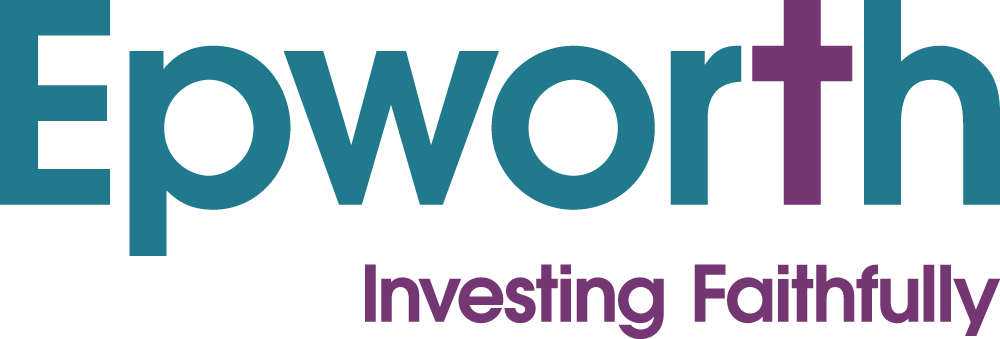
Introduction: More Than a Filter
Ethical investment isn’t just about ticking boxes or avoiding bad headlines. At Epworth, it’s a deeply considered process of discernment—one that reflects Christian theology, moral clarity, and long-term stewardship.
But how does it actually work?
In this article, we take you behind the scenes of our ethical screening process—explaining how companies are assessed, monitored, and selected (or rejected) based on faith-informed principles.
What Is Ethical Screening?
Ethical screening is the process of evaluating companies to determine whether they meet a defined set of moral, social, and environmental criteria. It helps ensure that investments are aligned with a set of values—in our case, Christian values.
At Epworth, screening is not an afterthought or marketing overlay. It is integrated into every stage of our investment process, from initial research to portfolio construction and ongoing monitoring.
Step 1: Define the Principles
We start with theological and ethical foundations, not just financial ones. Our screening criteria are shaped by:
- The social teaching of the Methodist Church, the Catholic Church (including Mensuram Bonam), and other ecumenical voices
- Core Christian convictions around human dignity, care for creation, justice for the poor, and non-violence
- Longstanding guidance from the Joint Advisory Committee on the Ethics of Investment (JACEI) and our internal Ethical Advisory Committee
These principles guide everything we do—not only who we exclude, but who we actively support.
Step 2: Exclude Harmful Activities
We apply clear ethical exclusions to companies whose core activities conflict with Christian values. These include:
- Fossil fuel extraction and thermal coal
- Adult entertainment and pornography
- High-interest or predatory lending (e.g. payday loans)
- Tobacco and gambling
- Weapons, especially indiscriminate or nuclear systems
- Severe human rights violations
- Child labour and exploitative supply chains
These exclusions are based on thresholds. For example, a company may be excluded if more than 5% of its revenue comes from tobacco, or if it fails to meet basic standards of labour rights across its operations.
See our full ethical investment policy
Step 3: Positive and Cautionary Screening
In addition to negative screens, we apply positive and cautionary filters to assess a company’s wider ethical profile.
We look at:
- Environmental performance (e.g. carbon targets, biodiversity policies)
- Supply chain transparency and fair treatment of workers
- Executive pay fairness and tax responsibility
- Business models aligned with health, education, or sustainable housing
- Public controversies or litigation that raise ethical red flags
Some companies may pass a basic exclusion test but still pose ethical concerns. In such cases, they may be held under close review, flagged for engagement, or excluded on a discretionary basis.
Step 4: Independent Research and Oversight
Our ethical screening is supported by:
- Independent third-party data providers (for objective ESG and controversy assessments)
- Internal ethics analysts who cross-reference company reports, NGO data, and news sources
- Ethical Advisory Committee (including external theological and sector experts)
- Ongoing collaboration with Christian networks, mission bodies, and partner denominations
We don’t rely on a single source—and we don’t make decisions lightly.
Step 5: Active Engagement and Ongoing Monitoring
Screening isn’t static. We continuously monitor portfolio holdings for new developments, including:
- Mergers and acquisitions that change a company’s business model
- Controversies or scandals (e.g. human rights violations, environmental harm)
- Shifts in revenue streams or regulatory breaches
- Performance against previous engagement commitments
Where problems emerge, we either:
- Engage the company directly and seek change
- Escalate through investor coalitions or shareholder voting
- Divest if change is not forthcoming and the issue breaches our policy
Learn more about our voting and engagement activity
Why This Matters for Trustees and Charities
Ethical screening ensures that your investments are not only financially sound but morally credible. As a trustee or treasurer, you are accountable to regulators, donors, beneficiaries—and God.
An ethically screened portfolio helps you:
- Avoid reputational risk
- Fulfil your charitable objectives
- Report transparently to your board, auditor, or synod
- Demonstrate alignment between mission and money
A Christian Approach in a Complex World
We know ethical decisions are not always black and white. That’s why we apply discernment, dialogue, and due diligence—guided by Christian wisdom and real-world expertise.
Some dilemmas require trade-offs. Some issues evolve. But one thing remains constant: our commitment to putting faith at the heart of finance.
Conclusion: Screening With Integrity
At Epworth, ethical screening is more than a process—it’s a principled expression of our identity. It ensures that our clients’ investments reflect not just best practice, but the best of their values.
Whether you’re a church, charity, religious order or mission agency, you can invest confidently—knowing that every company has been screened with care, prayer, and conviction.
Get in touch to discuss how ethical screening can support your charity’s investment objectives.
